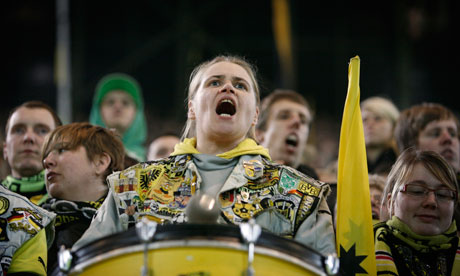- What distinguishes the European Union (EU) as a political union? a) The EU has a strong central government with absolute decision-making power. b) The EU aims to create a framework for cooperation among its member states on political matters. c) The EU consists of individual states with complete sovereignty and no shared policies. d) The EU's political institutions are controlled by a single leader elected by member states.
Answer: b) The EU aims to create a framework for cooperation among its member states on political matters.
- Which of the following is NOT one of the EU's political institutions? a) European Commission b) European Parliament c) European Council d) European Central Bank
Answer: d) European Central Bank
- How does the decision-making process within the EU often work? a) The EU's political institutions make decisions independently without consulting member states. b) Member states rarely need to negotiate or compromise on issues due to their shared interests. c) Complex negotiations and compromises are common among member states to accommodate diverse interests. d) The EU has a single leader who makes all decisions without the input of member states.
Answer: c) Complex negotiations and compromises are common among member states to accommodate diverse interests.
- How does the EU's single market promote economic integration? a) It allows member states to close their borders and restrict the movement of goods and services. b) It facilitates the free movement of goods, services, capital, and labor among member states. c) It only applies to countries within the Eurozone, allowing them to share a common currency. d) It imposes tariffs and trade barriers between member states to protect local industries.
Answer: b) It facilitates the free movement of goods, services, capital, and labor among member states.
- Which of the following is NOT a benefit of EU membership related to the economy? a) Access to a large market with over 500 million consumers. b) The adoption of a common currency known as the euro. c) Attracting higher levels of Foreign Direct Investment (FDI) due to regulatory stability. d) Limited control over national monetary policy for Eurozone countries.
Answer: d) Limited control over national monetary policy for Eurozone countries.
- What is the main advantage of having a common currency (euro) within the Eurozone? a) It allows for easier trade and financial transactions within the Eurozone. b) It eliminates the need for the EU's political institutions to make economic decisions. c) It reduces the economic influence of larger member states within the Eurozone. d) It prevents member states from trading with countries outside the EU.
Answer: a) It allows for easier trade and financial transactions within the Eurozone.
- Which of the following countries operates as a unitary state with a strong central government? a) The United States b) India c) China d) The European Union
Answer: c) China
- What is the primary objective of the European Central Bank (ECB) within the Eurozone? a) Maintaining price stability and supporting sustainable economic growth. b) Setting interest rates for individual member states. c) Controlling fiscal policies of member countries. d) Influencing foreign affairs and trade policies.
Answer: a) Maintaining price stability and supporting sustainable economic growth.
- How does the European Stability and Growth Pact (SGP) impact the Eurozone member countries? a) It sets rules and guidelines for fiscal discipline within the Eurozone. b) It allows member countries to maintain unlimited budget deficits. c) It requires all Eurozone countries to adopt a single fiscal policy. d) It encourages member countries to keep their budget deficits above 3% of GDP.
Answer: a) It sets rules and guidelines for fiscal discipline within the Eurozone.
- What is one of the challenges of the Economic and Monetary Union (EMU)? a) Divergent economic structures and levels of development among member states. b) A unified monetary policy that adapts easily to the needs of all member states. c) Limited need for fiscal coordination among member states. d) All member states must adopt the same currency, which limits economic growth.
Answer: a) Divergent economic structures and levels of development among member states.
---
Long Answer Questions
How does the European Union's political structure differ from that of the United States and China, and how does this affect decision-making processes within the EU?
Evaluate the advantages and disadvantages of EU membership, considering factors such as economic benefits, loss of sovereignty, and bureaucratic complexities.
Analyze the impact of the Eurozone's common currency, the euro, on economic integration and trade efficiency among member states.
Assess the challenges faced by new prospective members seeking to join the EU, including the adoption of Acquis Communautaire and financial obligations.
Critically examine the benefits and challenges of the continuous expansion of the EU, taking into account the effects on existing member states, new members, and the overall geopolitical landscape in Europe.
